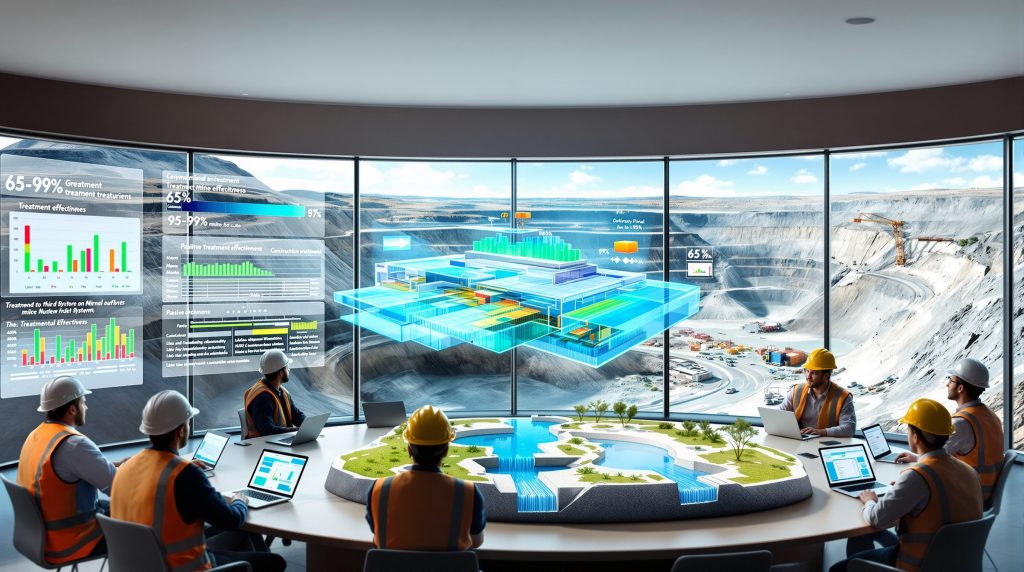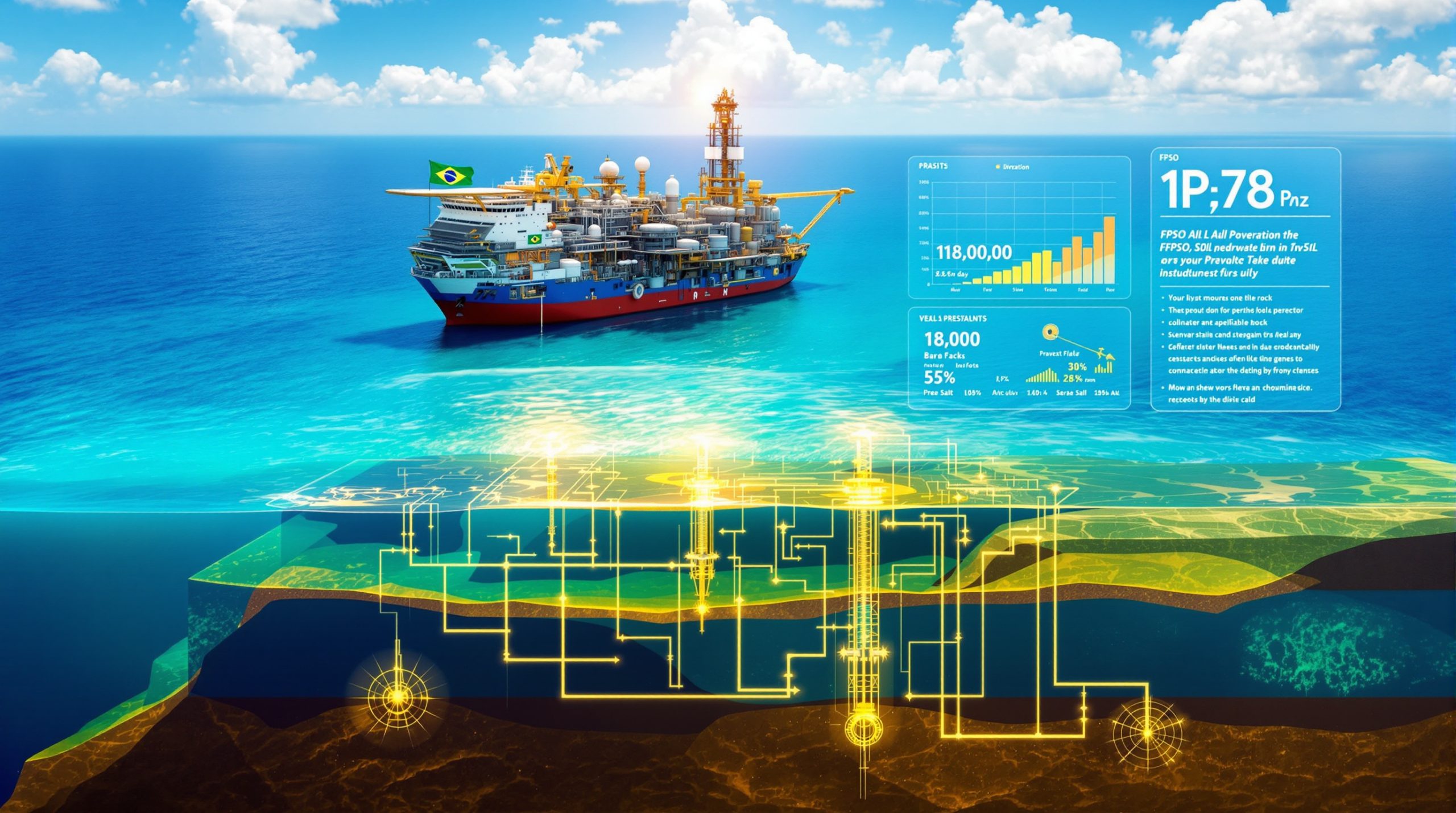Understanding Mine Rehabilitation and AMD Management Workshops
Mine rehabilitation and acid mine drainage management workshops serve as critical educational platforms where mining professionals, environmental scientists, and regulatory experts converge to tackle one of the industry's most persistent environmental challenges. These specialized training programs combine scientific theory with practical application, focusing on comprehensive approaches that incorporate mine reclamation innovation to prevent, treat, and manage the long-term environmental impacts of acid-generating mining operations.
The evolution of these workshops reflects the mining industry's growing recognition that proactive environmental management delivers superior outcomes compared to reactive remediation approaches. Modern programs emphasise integrated lifecycle solutions that prioritise prevention strategies while maintaining expertise in advanced treatment methodologies for existing contamination.
Essential Components of Professional Development Programs
Contemporary mine rehabilitation and AMD management workshop curricula encompass multiple interconnected learning modules designed to address the complex nature of acid mine drainage challenges. Technical training components typically include:
• Geochemical characterisation methodologies for sulfide-bearing waste materials
• Predictive modeling techniques using industry-standard software platforms
• Treatment system design principles incorporating both active and passive approaches
• Long-term monitoring protocol development and data interpretation strategies
• Regulatory compliance frameworks and reporting requirements
Practical learning experiences form the cornerstone of effective AMD education, providing participants with hands-on exposure to real-world scenarios. These experiential components often feature site assessments at operational and closed mining facilities, laboratory demonstrations of neutralisation processes, and collaborative problem-solving sessions using actual case study data from global rehabilitation projects.
Addressing Contemporary Environmental Management Challenges
Modern mine rehabilitation and AMD management workshop programs have evolved significantly beyond traditional remediation approaches to embrace comprehensive, prevention-focused methodologies. This transformation reflects advancing scientific understanding of acid generation mechanisms and the development of more sophisticated waste management solutions.
The shift toward prevention-first methodologies represents a fundamental change in industry thinking, recognising that source control measures typically prove more cost-effective and environmentally beneficial than long-term treatment commitments. Workshop participants learn advanced techniques for implementing selective waste placement strategies based on detailed geochemical characterisation, designing engineered cover systems incorporating multiple barrier technologies, and developing underwater storage solutions for highly reactive sulfide materials.
Advanced Treatment Technology Integration
Contemporary workshops emphasise the integration of multiple treatment approaches, recognising that optimal AMD management often requires hybrid systems combining active, passive, and biological treatment components. The effectiveness and cost considerations of different treatment categories demonstrate the complexity of system selection decisions:
| Treatment Approach | Primary Technologies | Effectiveness Range | Operational Considerations |
|---|---|---|---|
| Active Systems | Chemical neutralisation, precipitation | 95-99% metal removal | High energy and chemical costs |
| Passive Systems | Constructed wetlands, limestone channels | 70-95% metal removal | Lower maintenance requirements |
| Biological Treatment | Sulfate-reducing bioreactors | 80-98% metal removal | Temperature and pH sensitive |
| Hybrid Solutions | Combined active/passive approaches | 90-99% metal removal | Optimised cost-effectiveness |
The selection of appropriate treatment technologies depends on numerous site-specific factors including water chemistry, flow rates, climate conditions, and long-term performance requirements. Furthermore, workshop participants learn systematic approaches to technology evaluation and selection that consider both technical performance and economic sustainability over extended operational periods.
Diverse Training Formats and Delivery Methods
Professional development in AMD management employs varied educational approaches to accommodate different learning preferences and professional scheduling constraints. These diverse formats ensure comprehensive knowledge transfer while maintaining practical relevance for working professionals, particularly as data‐driven operations become increasingly important in modern mining practices.
Intensive Residential Programs
Short-course intensive programs typically spanning three to five days provide concentrated exposure to fundamental principles and advanced techniques. These immersive experiences feature structured learning progressions that include:
• Morning theoretical sessions covering scientific principles and regulatory frameworks
• Afternoon practical exercises utilising industry-standard modelling and design software
• Evening case study discussions facilitated by experienced practitioners
• Field excursions to operational treatment facilities and rehabilitation sites
• Collaborative project work addressing real-world AMD management challenges
The concentrated nature of these programs allows for intensive skill development whilst minimising time away from regular professional responsibilities. Consequently, participants benefit from sustained focus on AMD topics and extensive networking opportunities with industry peers and technical experts.
Digital Learning Platforms and Virtual Education
Online mine rehabilitation and AMD management workshop platforms have revolutionised accessibility to specialised education, offering flexible learning opportunities that accommodate global participation. Digital delivery methods provide several advantages including:
Self-Directed Learning Modules
• Modular content organisation enabling personalised learning pace
• Interactive simulations for treatment system design and optimisation
• Progress tracking systems with competency-based assessments
• Access to global expert networks through integrated discussion forums
Virtual Laboratory Experiences
• Remote access to specialised geochemical modelling software
• Simulated field sampling and analytical procedures
• Real-time data interpretation exercises using actual site datasets
• Collaborative project work connecting international participants
The flexibility of digital platforms particularly benefits professionals in remote locations or those with demanding operational schedules, democratising access to specialised AMD management education.
Leading Organisations in AMD Education and Training
Several institutional categories have established themselves as authorities in AMD education, each contributing unique strengths and perspectives to professional development in mine rehabilitation and acid mine drainage management. These organisations recognise the importance of staying current with industry evolution trends to provide relevant and forward-thinking training programs.
Academic Research Institutions
Universities with specialised mining and environmental engineering programs offer scientifically rigorous training that bridges theoretical understanding with practical application. The Sustainable Minerals Institute at The University of Queensland exemplifies this approach, recently showcasing new ideas in AMD management and mine rehabilitation through comprehensive workshop programs that bring together researchers and industry practitioners.
Academic institutions typically provide research-based curricula incorporating the latest scientific findings, access to state-of-the-art analytical equipment for hands-on training, expert faculty with extensive field experience, and continuing education credits for professional development requirements.
Industry Collaborative Networks
Mining companies and technology providers increasingly participate in consortium-based training initiatives that facilitate knowledge sharing and best practice development. These collaborative efforts focus on technology transfer for rapid adoption of proven innovations, cost-sharing arrangements that reduce individual training expenses, peer learning networks enabling direct experience exchange, and development of standardised protocols for industry-wide consistency.
For instance, organisations such as Mine Waste Solutions offer specialised training series that leverage collective industry experience whilst distributing development costs across multiple participants, making advanced training more accessible to smaller organisations.
Regional Adaptation and Localised Solutions
Effective mine rehabilitation and AMD management workshop programs must address region-specific challenges arising from local geological conditions, climate patterns, and regulatory frameworks. Successful programs tailor content to regional variations while maintaining alignment with global best practices and incorporating mine planning and ESG considerations.
Tropical Environment Considerations
Workshops conducted in tropical regions emphasise unique challenges associated with high precipitation environments, including:
Enhanced Water Management Requirements
• Treatment system capacity planning for monsoon conditions
• Seasonal flow variation management strategies
• Infrastructure design for extreme weather resilience
• Accelerated weathering rate calculations and implications
Biodiversity and Ecosystem Integration
• Native species selection for rehabilitation programmes
• Ecosystem service restoration methodologies
• Community-based monitoring programme development
• Integration of traditional ecological knowledge systems
Arid Climate Adaptation Strategies
Desert and semi-arid environment workshops focus on water conservation and management challenges specific to low-precipitation regions:
• Water recycling and reuse system optimisation
• Evaporation management and concentrate handling
• Integrated dust control and AMD management approaches
• Long-term system stability under extreme temperature variations
These regional adaptations ensure that workshop participants develop practical skills directly applicable to their local operating conditions whilst understanding broader principles that enable knowledge transfer across different environments.
Technology Integration in Modern AMD Training
Technological advancement has fundamentally transformed both AMD management practices and educational methodologies used in professional development programs. Modern mine rehabilitation and AMD management workshop curricula integrate cutting-edge tools to enhance learning effectiveness and practical skill development.
Digital Modelling and Predictive Analysis
Contemporary training programs extensively utilise sophisticated software platforms for geochemical modelling, hydrogeological simulation, and treatment system optimisation. Participants gain hands-on experience with predictive modelling tools that forecast acid generation potential, assess groundwater impact scenarios, and optimise treatment system performance under varying conditions.
Virtual reality applications increasingly supplement traditional training methods, providing immersive experiences for site inspection procedures, safe exposure to hazardous environment conditions, and equipment operation training without physical risks. However, these technologies enable realistic training scenarios while maintaining participant safety.
Real-Time Data Integration
Advanced workshops increasingly incorporate live data streams from operational AMD treatment facilities, allowing participants to observe system performance variations, practise troubleshooting using actual operational data, understand seasonal and climatic impacts on treatment effectiveness, and develop rapid response protocols for system optimisation.
This integration of real-time operational data provides invaluable learning opportunities that bridge the gap between theoretical knowledge and practical application.
Assessment Methods and Training Effectiveness Measurement
Successful AMD management education requires comprehensive evaluation approaches that assess both theoretical understanding and practical competency development. Modern workshop programs employ multiple assessment strategies to ensure thorough skill development.
Competency-Based Evaluation Systems
Technical Proficiency Assessment
• Geochemical data interpretation and analysis exercises
• Treatment system design challenges with performance criteria
• Regulatory compliance scenario analysis and reporting
• Economic evaluation and cost-benefit calculation assessments
Practical Skill Demonstration
• Field sampling technique evaluation and quality control
• Laboratory procedure execution and safety protocol compliance
• Equipment operation competency verification
• Emergency response procedure demonstration
Long-Term Impact Measurement
Leading workshop programmes implement follow-up assessment protocols conducted 6-12 months after training completion to evaluate knowledge retention, practical application success, and ongoing professional development needs.
Career Advancement Indicators
• Professional certification achievement rates and progression
• Increased responsibility and project leadership opportunities
• Industry recognition through awards and peer acknowledgment
• Contribution to AMD management innovation and best practice development
Operational Performance Improvements
• Treatment system efficiency enhancements following training
• Regulatory compliance improvements and reduced violations
• Cost reduction achievements through optimised management practices
• Environmental performance gains and stakeholder satisfaction improvements
Future Trends Shaping AMD Workshop Evolution
The field of acid mine drainage management continues evolving rapidly, driven by technological innovation, regulatory development, and increasing environmental awareness. Workshop programs must anticipate and prepare professionals for emerging challenges and opportunities.
Climate Change Adaptation and Resilience Planning
Future mine rehabilitation and AMD management workshop programs will increasingly address climate-related challenges including:
Extreme Weather Preparedness
• Treatment system resilience planning for flooding and drought conditions
• Temperature variation impacts on biological treatment systems
• Integrated stormwater management and AMD treatment approaches
• Emergency response protocol development for climate-related disruptions
Long-Term Stability and Adaptive Management
• Multi-decade performance modelling under changing climate conditions
• Adaptive management strategy development for evolving environmental conditions
• Monitoring system evolution planning for extended operational periods
• Maintenance requirement forecasting under climate uncertainty
Circular Economy Integration and Resource Recovery
Emerging workshop content increasingly addresses opportunities for resource recovery and circular economy principles in AMD management:
Value Recovery from AMD Streams
• Metal extraction and recovery technologies for contaminated water
• Water treatment and recycling system integration
• Valuable mineral recovery from treatment precipitates
• Waste-to-resource conversion strategy development
Sustainability Assessment and Reporting
• Life cycle assessment methodologies for AMD management systems
• Carbon footprint calculation and reduction strategies
• Social impact measurement and community benefit optimisation
• Economic benefit quantification and stakeholder value creation
Conclusion and Professional Development Pathways
Mine rehabilitation and AMD management workshops represent essential professional development opportunities for environmental practitioners, mining professionals, and regulatory specialists. These specialised programmes provide crucial knowledge and skills needed to address one of the mining industry's most significant environmental challenges whilst preparing participants for evolving technological, regulatory, and climate-related developments.
The diversity of training formats, from intensive residential programs to flexible online platforms, ensures accessibility for professionals across different geographical locations and career stages. As the field continues advancing through technological innovation and scientific research, ongoing professional development through specialised workshops remains critical for maintaining expertise and implementing best practices in acid mine drainage management and mine rehabilitation.
Success in AMD management requires continuous learning, adaptation to emerging technologies, and commitment to environmental stewardship. Professional workshops provide the foundation for developing these capabilities whilst fostering collaborative networks that drive industry-wide improvements in environmental performance and sustainability outcomes.
Disclaimer: This article provides general information about mine rehabilitation and AMD management workshops for educational purposes. Specific technical decisions regarding acid mine drainage management should be based on site-specific conditions and professional engineering assessment. Readers are encouraged to consult qualified environmental professionals and refer to current regulatory requirements for their jurisdiction.
Ready to Capitalise on Environmental Mining Solutions?
Discovery Alert's proprietary Discovery IQ model delivers real-time alerts on significant ASX mineral discoveries, including companies developing innovative environmental technologies and rehabilitation solutions that could transform the mining industry's sustainability landscape. Begin your 30-day free trial today and gain immediate access to actionable investment opportunities in the evolving environmental mining sector.




